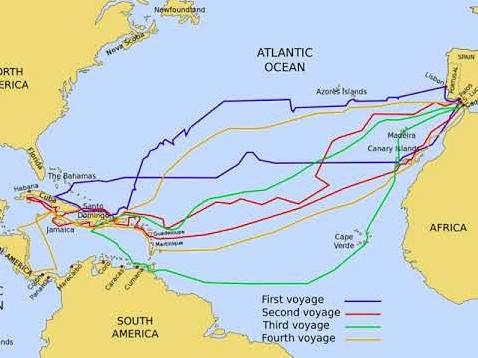When Christopher Columbus was on his first voyage across the Atlantic, he sailed due west from the Canary Islands, which would have likely taken him to landfall somewhere around the coast of North or South Carolina as they are today. But, after a month at sea, the crew were getting anxious. Nobody in recorded history had sailed this far west before and the men were frightened and restless.

Then the ship’s lookout saw a flock of migrating birds heading south west. After some deliberation, Columbus changed course to follow the birds and the ship landed on the small island of San Salvador, followed by Cuba and Hispaniola (modern day Haiti and Dominican Republic). On his subsequent voyages, each time Columbus sailed south west, thereby “discovering” South and Central America as well as many of the islands in the West Indies (so called because Columbus thought he had sailed around the world and discovered a route to the “East Indies”).
Columbus was from Genoa (now in Italy) but his expeditions were commissioned by the Queen of Spain. His first voyage across the Atlantic was in 1492, but only 5 years later, in 1497, John Cabot, another Italian explorer, but this time commissioned by the King of England, continued on his westerly path, discovered what is still today called “Newfoundland”, and claimed the North American continent for King Henry 7th.
So, as a result of seeing some birds, most of Central and South America today speaks Spanish and most of North America speaks English. I don’t necessarily think this is the most important thing ever to happen, but it does illustrate how tiny chance events can radically alter the course of history.


No comments yet, come on and post~